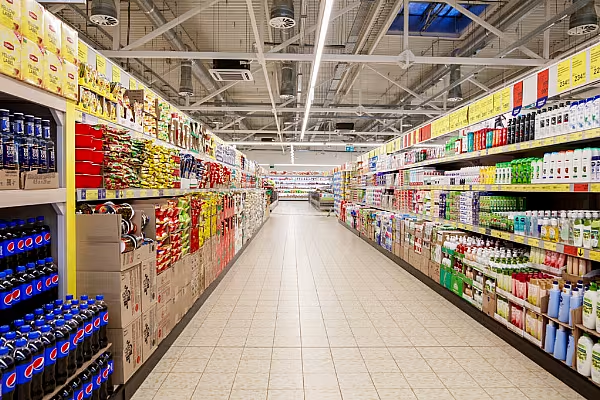Russia's O'Key Group saw sales at its Da! discounter chain grow by close to a third in the first half of its financial year, which helped lift the group's net retail revenue by 7.3% in the period.
The Da! arm of the business saw net retail revenue up 31.3%, with the business seeing a 2.6% increase in traffic and a 28.0% increase in basket size.
Its core O'Key business saw revenue up 4.3%, with a 13.4 decrease in traffic – due to coronavirus restrictions – and a 20.5% increase in average basket.
Group Performance
Total group revenue increased by 6.5% year-on-year to RUB 85.06 billion (€960 million) in the first half, O'Key said.
Group EBITDA was up by 5.6% in the period due to a combination of 'revenue growth, improved operational efficiency and disciplined cost management', it said, with Da! seeing a significant turnaround in performance, from a negative RUB 169 million in H1 2019 to a positive RUB 459 million in H1 2020.
The O'Key business saw a 4.2% decline in EBITDA, however, to RUB 6.24 billion.
EBITDA margin remained flat at 7.9% in the first half, with retail revenue growth and cost optimisation partially offset by ' a year-on-year decrease in rental income and lower non-cash gain from lease agreement modification', O'Key said.
The business also saw a decline in rental income during the period, from RUB 958 million in H1 2019 to RUB 723 million in H1 2020, due to the closure of a number of leaseholders' businesses during the COVID-19 pandemic. Other pandemic-related expenses included the payment of extra bonuses to store staff and the introduction of additional health and safety measures.
Analyst Viewpoint
Commenting on its performance, analyst Artur Galimov of Sova Capital said, "O’Key’s results confirmed that conventional large boxes did not benefit from the lockdown like convenience stores or Lenta and its more compact urban hypermarket format. Despite some stabilization in LfLs and sales density in 1H20, the EBITDA margin for O'Key hypermarkets continued to compress amid growing shrinkage and a lack of operating leverage support.
"We generally stick to our notion that the chain struggles to solidify its core business, gain traffic and improve sales (which is what should eventually beef up margins) amid vigorous competition and structural weakness in large boxes. At the same time, a lack of financial flexibility tames the development of discounters."
© 2020 European Supermarket Magazine – your source for the latest retail news. Article by Stephen Wynne-Jones. Click subscribe to sign up to ESM: The European Supermarket Magazine.














